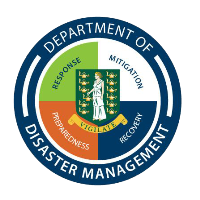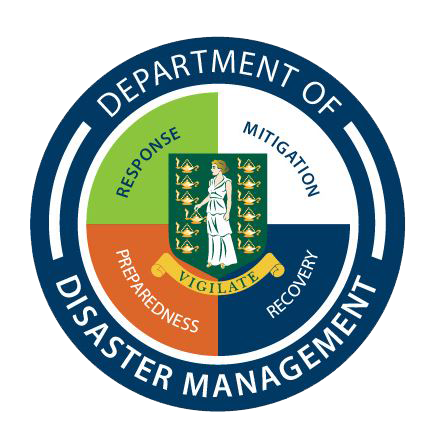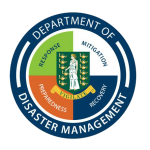RULES AND REGULATIONS
The Disaster Management Act 2003 includes rules and regulations for the operation of shelters. It requires the enforcement of a number of rules and gives authority to the Shelter Manager to enforce those rules. Whether occupancy is short or long-term, the rules must be obeyed. The relevant section of the law is included in the annex to this plan. (Section 13 of the Act).
The regulations, rules guidelines and operational procedures shown below, are all intended to ensure the observance of law and order and the safety and comfort of shelterees.
4.2.1 GENERAL
(i) The Shelter Manager is the supreme authority in the shelter and his/her decision is final.
(ii) The Deputy Shelter Manager or other person designated by the Shelter Manager will be responsible for the shelter in the absence of the Shelter Manager.
(iii) The Manager is entitled to call upon any occupant of the shelter to assist in its operation and every occupant is expected to cooperate to the best of his/her ability.
(iv) If a State of Emergency is proclaimed at any time under the Emergency Powers Act, all persons within the shelter will be subject to the orders made under the Act and will be liable for such penalties as may be imposed for failure to comply.
(v) The Shelter Manager and members of the shelter management team are forbidden to accept responsibility for any item of personal property of any shelter occupant.
(vi) Any person, whether an occupant of the shelter or not, is liable for damages caused from deliberately defacing the shelter or any item of furniture or equipment and shall be prosecuted.
(vii) The use of violence, profane language and illegal drugs will result in prosecution where any such offence is contrary to the law.
(viii) The use of alcoholic beverages and drunkenness will not be permitted.
(ix) Arms and ammunition, and other forms of weaponry will not be allowed in the shelter.
(x) Open flames or cooking will not be permitted within the shelter, except in specially designated areas, and such areas may only be used with the authorization of Shelter Administrative Personnel.
(xi) All occupants using the facilities of an Emergency Shelter must be registered with that centre.
(xii) Pets or domestic animals, except seeing-eye dogs, will not be allowed in the Emergency Shelter, as this may be a contravention of the Public Health Rules and Regulations.
4.2.2 LAW AND ORDER
(i) Generally, all existing laws of the British Virgin Islands shall be enforced in a shelter.
(ii) Shelter occupants shall be obliged to use the shelter area assigned to them by shelter officials. Personal conflicts shall be resolved by Shelter Unit Leaders, if possible.
(iii) Minor violations, such as violation of quiet hours, shall be handled by unit leaders also.
(iv) Any necessary restraint and serious disciplinary action will be ordered only by the Shelter Manager in consultation with the Zonal Committee.
4.2.3 SAFETY AND FIRE
(i) All occupants shall turn in knives, flammable liquids and other potential safety hazards to central supply for safekeeping.
(ii) For safety and health reasons, smoking will not be permitted inside the shelter.
(iii) Smokers may smoke outside of the shelter only.
(iv) Shelter occupants should watch for and report any potential fire hazard such as careless use of combustible materials, metal equipment, faulty wiring, outlets and switches.
4.2.4 FIREFIGHTING
The following basic rules apply to putting out fires:
(i) Wood, paper, cloth or rubbish fires can best be extinguished by water.
(ii) Gas, oil or grease fires can best be extinguished by sand or dirt.
(iii) Electrical fires can best be extinguished by turning off electrical power and then using sand or dirt.
(iv) The fire extinguisher present in each shelter of the Territory should be used to extinguish minor fires.
(v) In the event of a major fire, the BVI Fire and Rescue Service should be notified immediately.
4.2.3 HEALTH AND SANITATION
The following rules will be observed:
Persons with contagious diseases shall be isolated immediately.
(i) The daily sick call schedule shall be observed.
(ii) Shelter floors shall be kept clean of waste materials.
(iii) Restroom areas shall be kept clean at all times.
(iv) Waste containers shall be disposed of as soon as filled.
(v) Drinking cups shall be marked and retained for re-use by individual shelter occupants. (vi) Towels shall be retained by individuals for re-use as long as possible.
(vii) Bodies of deceased persons shall be immediately removed form the shelter
4.2.4 SPACE ALLOCATION
(a) Principles
• Use existing facilities as designed.
• Keep family groups together.
• Separate non-family males and females.
• Put sleep areas as far as possible from activity areas.
• Put stores area close to administration areas.
• Assign eating areas close to cooking area.
(b) Alternatives
• Separate all sleeping areas into male and female.
• Schedule activities to provide sleep periods.
• Add security to protect stores.
• Transport food from cooking area to feeding area.





